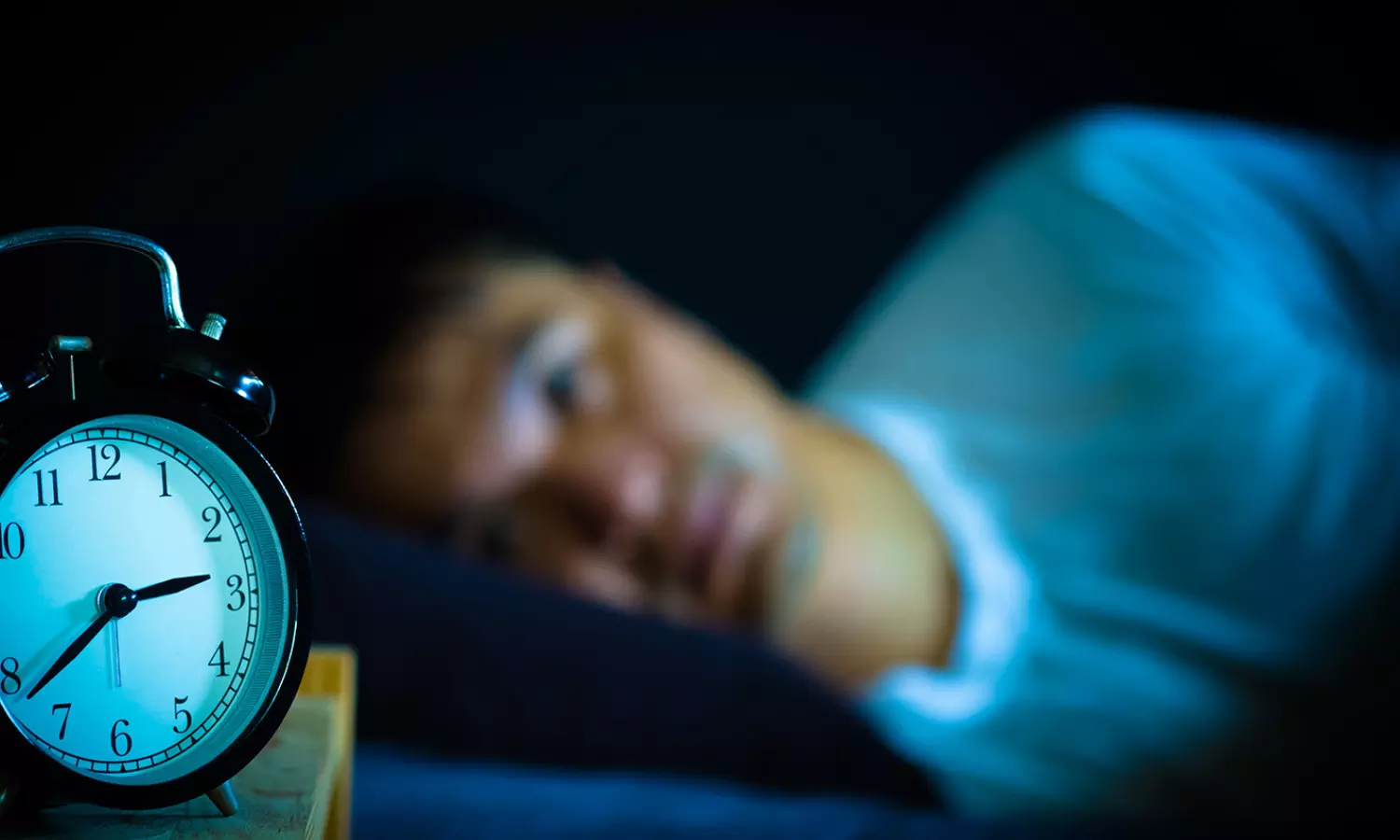`Early to bed…': Study reveals Covid survivors twice at risk of developing sleep disorders
About 4.2% of the participants were infected with Covid-19. Around 3.1% slept for 4 hours or less; 24.2% slept for 5-6 hours; approximately 60% slept well, and 12.8% slept for more than 9 hours.
By Sumavarsha kandula
A recent study presented at the `SLEEP 2022', the 36th annual meeting of the Associated Professional Sleep Societies (APSS), has explored an association between Covid-19 and sleep using data from the United States National Health Interview Survey (NHIS). The study surveyed 17,636 persons aged 18 years and older. The subjects self-reported their sleep quality and quantity over the previous 30 days.
About 4.2% of the participants were infected with Covid-19. Around 3.1% slept for 4 hours or less; 24.2% slept for 5-6 hours; approximately 60% slept well, and 12.8% slept for more than 9 hours.
According to the study, over 37% of participants had difficulties falling asleep on some days, and nearly 11% had trouble sleeping on most days; 6.5% of individuals reported sleeping problems every day.
Participants also reported difficulties sleeping through the night, with 33.7% having difficulty sleeping some days, 13.9% most days, and 6.6% every day.
Dr. Vikas Gaur, Head of the Psychiatry Department at Amrita Hospital, Faridabad, said: "In my recent research about people with Covid, nearly 50% are showing symptoms of depression or anxiety. About 26% of people now suffer from sleep disorders and an equal number from anger-related issues. Interestingly, there is also a substantial rise in the onset of new cases of psychosis, a trend not seen earlier."
Dr. G Venkata Lakshmi, pulmonology consultant at Amor hospitals said: "Prevalence of disturbed sleep had a more direct connection to the weight of the person rather than age, especially with 'obstructive sleep apnea. 'Apnea' means air gets blocked, so in this particular condition, the airway is obstructed. In layperson's terms, the tongue falls in the way of the air pipe and completely stops the breath. Due to this, sleep breaks often at night, oxygen levels drop, and blood pressure shoots up. Symptoms can include daytime fatigue, lack of attention, uncontrolled blood pressure, and diabetes."
Covid has opened a pandora box of problems. It has altered taste, smell, and many issues which could not be neurologically explained or studied. "People who had severe Covid, cytokine storm, there were many issues. Of the patients I've come across, almost 50% of them faced sleep issues. Even the ones with no severe symptoms had their sleep cycle altered. It may be ICU-related or treatment-related, but again even asymptomatic patients faced these issues," she said
Dr. Sudheer, a Pulmonologist at Care hospitals said: "I've not come across anyone with severe insomnia, but the sleep disturbances were there, which might have been due to other issues like persistent coughing et al. We observed that people with anxiety found it much harder to sleep. Again the vibrations were not only due to psychological reasons but autonomic dysfunction. The autonomic nervous system is an independent nervous system with its activity. It regulates heartbeat, breathing, blood pressure, and bowel movement. During the first two waves of covid, autonomic disturbances, like low heart rate, might have led to sleep disturbances. Again this is only a possibility. We didn't see many of these cases during the omicron."
Dr. Venkata Lakshmi said: "Definitely, there was a lot of uncertainty. Jobs were lost, near ones were dying, and they were getting sick. The use of steroids in treatment could be one reason. There was a lot of hormonal disturbance."
Dr. Sudheer said: "During the first two waves, there was a lot of anxiety and PTSD (Post-traumatic stress syndrome). They have seen people dying, helplessness and uncertainty. Even the other kinds of stress, people living alone, financial issues, and many such issues. These factors have contributed, and they have had an indirect impact. Long working hours also have impacted this. We usually have 90-minute cycles to fall asleep. This was disturbed by work pressures."
When asked about the treatment or medication for the same, Dr. Venkata Lakshmi said: "They are divided into psychotic and sleep apnea, so it is first important to find the root cause. For Obstructive sleep apnea (OSA), there are C-pap machines and other nasal devices, while in the case of central sleep apnea, which is due to stroke or other conditions, there are different treatments. The other majority are psychiatric patients who have anxiety or mood disorders. The psychiatrists can treat that."
Dr. Sudheer said: "It is fine. We have prescribed anxiolytics to people considering the stressors they've gone through. At the end of the day, we need a good night's sleep. We can't function without sleep. There'll be a lot of fatigue, headaches, and other issues. So it is okay to take the help of medication in severe cases."
But is there something we can inculcate in our routine?
Dr. Venkata Lakshmi said "First thing we suggest is sleep hygiene. Sleep timing is critical. The old saying, 'early to bed, early to rise is still relevant. The second thing is to exercise for at least 40 minutes. It sets the right Metabolism and helps in the release of endorphins. The third and most prominent issue is screen time. Due to the screen light, the melatonin, essential for healthy sleep, gets depleted."
Dr. Sudheer said: "Screen time has been the most pertinent issue, so cutting down on that at least an hour before sleep time. Having light food also helps with nothing that irritates the gut. One can try following a routine and sleeping at the same time every day. This way, our mind gets habituated. Alcohol and caffeinated drinks disrupt sleep, so try avoiding that post-5 PM. Optimization of medication, like the overuse of multivitamins, also can help. Compulsive over-drinking of water and iron deficiency disrupts sleep. These are some things that get overlooked."